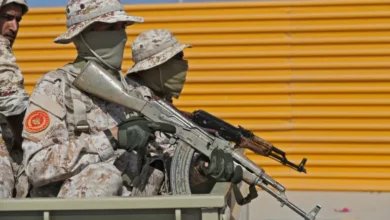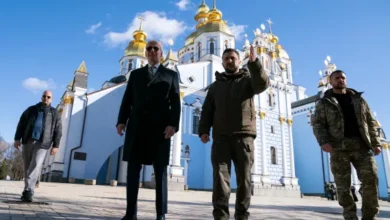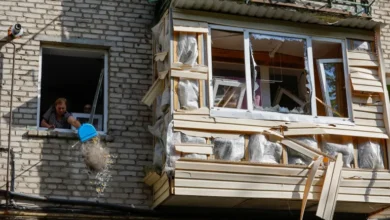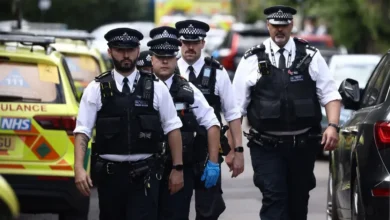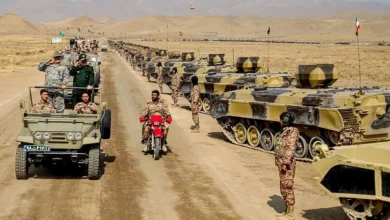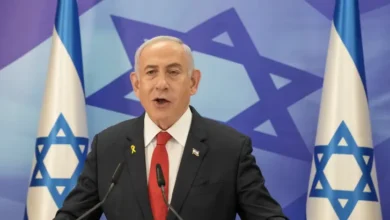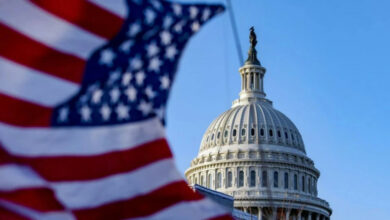Boycotts and protests – how are people around the world defying Israel?
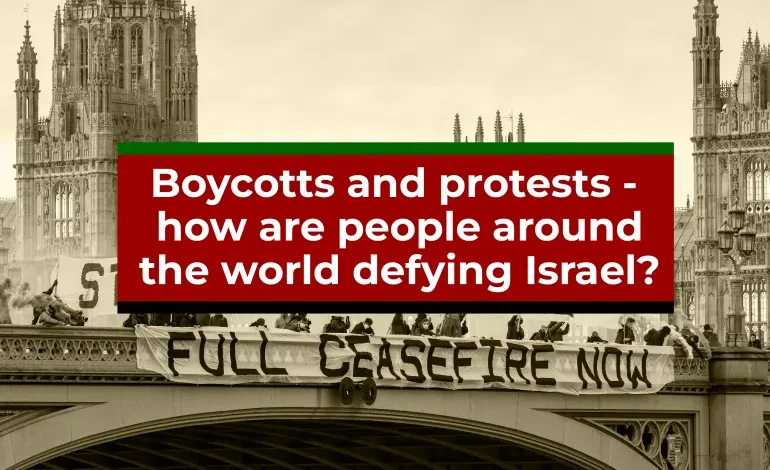
From Jakarta to San Francisco, hundreds of thousands of people have taken to the streets over the past two months to protest Israel’s ongoing assault on Gaza, which has killed more than 18,700 people, including more than 7,700 children.
According to the Armed Conflict Location & Events Data Project, a nongovernmental organisation specialising in conflict data collection, from October 7 to November 24, there were at least 7,283 pro-Palestine protests that took place in more than 118 countries and territories.Many more have chosen to express their condemnation using their purchasing power, opting to boycott products and services that support Israel, in turn fueling the Boycott, Divestment and Sanctions (BDS) movement that was set up in 2005 by a coalition of Palestinian civil society groups.
Censoring voices on campus
In the United States, students at several universities, including Columbia University in New York City, have said their attempts to speak out against Israel’s bombardment of Gaza have met intimidation and censorship.
“I think being at a school at Columbia that has so much global power, I felt the need to act. And also, I just think that this issue is one that connects so many other ones where we see police violence, settler colonialism, these issues that are so important in America as well,” said Daria Mateescu, a law student at Columbia University.
Mateescu, 25, is a first-generation Romanian American who leads the Columbia University Apartheid Divest student group, a coalition of about 80 student organisations that see Palestine as the vanguard for collective liberation of the marginalised.
She said she and her peers feel the university is not listening to student voices calling for divestment from Columbia’s Tel Aviv campus, which Palestinians and Arabs cannot attend; reaffirmation of free speech on campus; and reinstatement of two student groups – Students for Justice in Palestine and Jewish Voice for Peace (JVP) – that were suspended by the university in November.
Mateescu said that in addition to protests on and off campus, members of the community are making consumer choices tied to what they believe.
“People are really respecting the targeted boycotts for places like McDonald’s or Starbucks … ‘We don’t buy from these places.’ That’s incredible to hear,” she told Al Jazeera.
Across the Atlantic in the United Kingdom, a group of students at the University of York have also been holding events to raise awareness about the events in Palestine.
The students requested their identities be concealed due to the backlash for publicly supporting Palestine.
“I do find that a lot of people don’t want to take a stance on it and are sort of sitting in the middle and a lot of people that I know don’t really understand what’s going on very much because there’s quite a lot of misinformation. I would say it’s your duty to uplift voices that aren’t necessarily being heard,” one of the society members said.
“I think for me to take the small action of not buying a coffee at a certain chain, it’s very easy to take small actions to make sure that there’s less money being directed towards violence,” she said, explaining the steps she is taking.
Another member said they are focused on educating people who may not be equipped with information to form an opinion on the conflict and the conditions of the Palestinian people.
